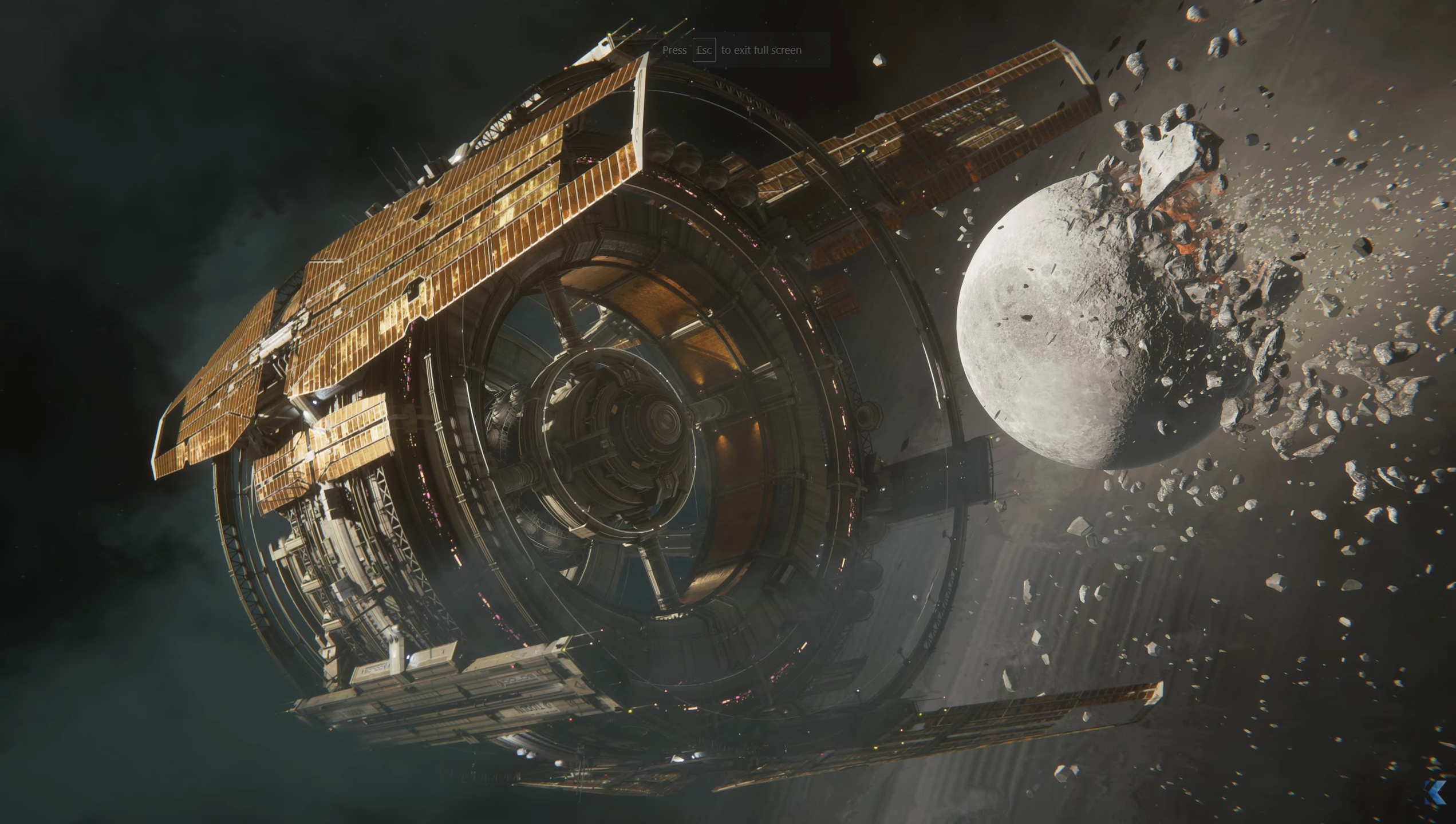
Surely not everyone is playing Elden Ring at the moment, right? Right? Well, if you're looking for a change of pace, not to mention a cost of absolute zero dollars, Steam Next Fest has been running all week and it doesn't end until February 28. That means there are hundreds of free demos to try for upcoming games and a few days left to dive into them.
Of course, with so many choices it can be hard to pick a starting place. That's where we come in. We've played a bunch of the demos available at Steam Next Fest and we're highlighting just a few of them we think you shouldn't miss. And if you've played a demo you think we should try, don't hesitate to let us know in the comments below.
Beacon Pines
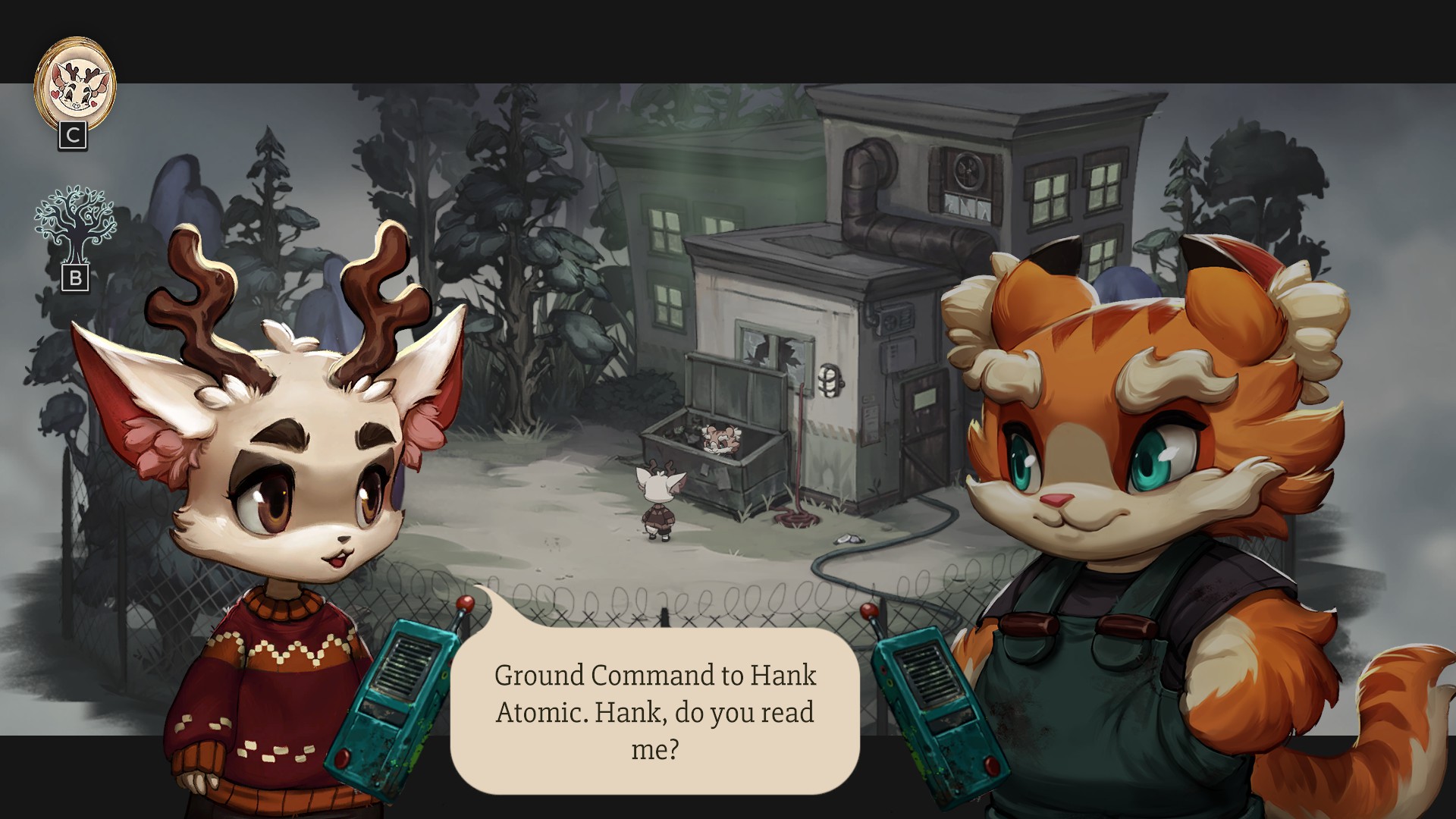
Beacon Pines has colorful, storybook visuals and a bunch of anthropomorphic animal protagonists, but it's not as cloyingly cute as that makes it sound. It's actually a small town mystery set in vaguely North American nowhere about a few 12-year-olds uncovering the secrets of a local abandoned fertilizer factory. Although things start out picturesque as the town prepares for a festival, things get spooky quite quickly when Luka VanHorn and his best friend Rollo sneak off to explore in the forest.
The picture book aesthetic isn't just for show, either. Beacon Pines is an adventure game, but it doesn't ask you to collect unlikely items to solve puzzles. Instead, it's a Mad Libs-like story puzzle where words you've collected from conversations or observations become your choices at pivotal moments. In one early interaction, I'm only able to distract Rollo's older sister by attempting to be a little "chill". After a later discovery, I open up my story book and head back to that moment fully intending to be a little "shit". Yup, it's a story where pre-teens get to be sarcastic and say "shit". It's a relatively quick 30-ish minute demo but I've gotten several laughs out of it already and look forward to the rest of the spooky Beacon Pines mystery.—Lauren Morton, Associate Editor
Demeo: PC Edition
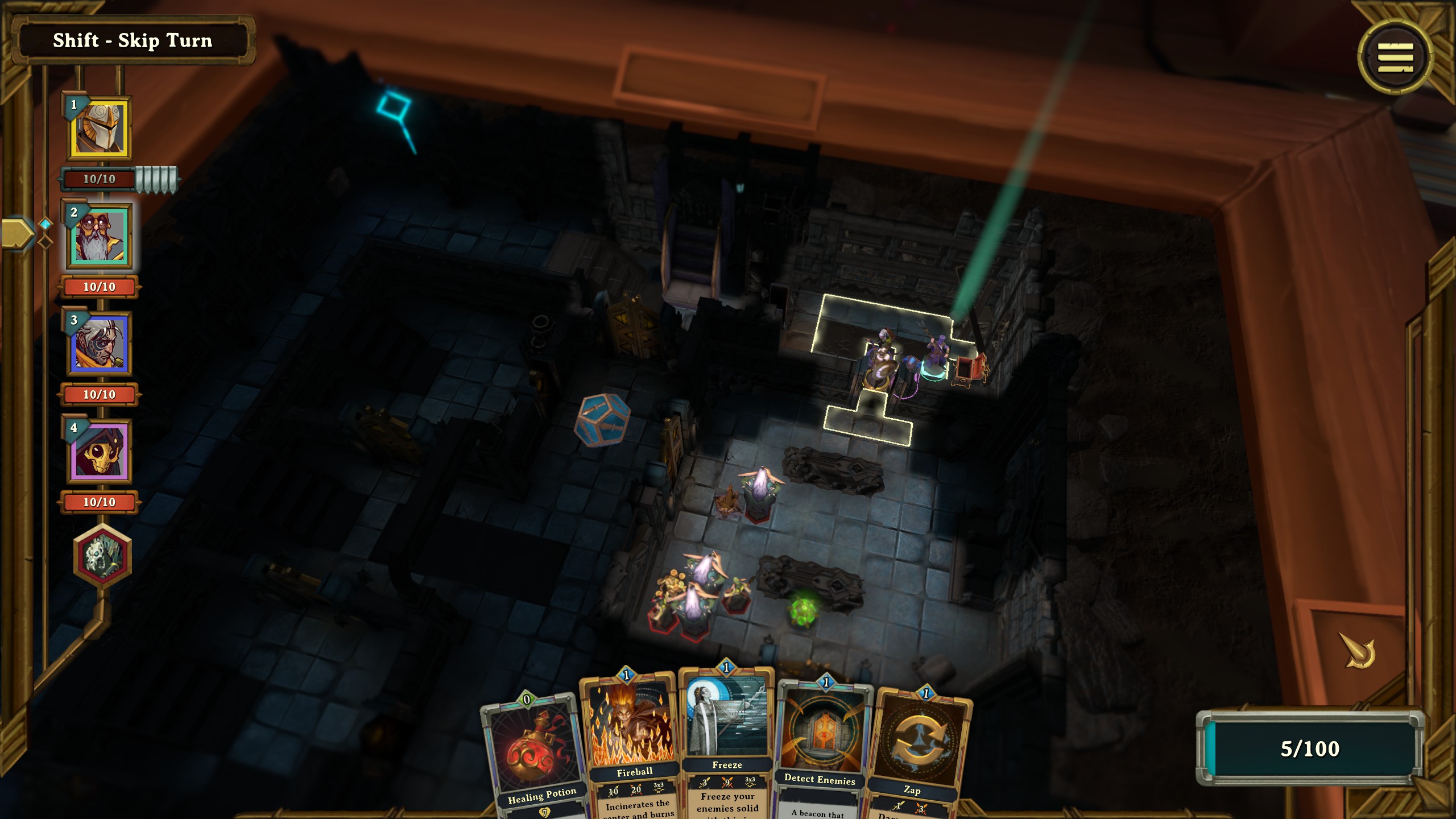
Demeo is a turn-based dungeon-crawler initially made for VR, and the upcoming PC Edition remakes it for flat screens. The VR version put the action on top of a table in an idealized basement like American teens on TV have, which looked cool, but meant I got a crick in my neck from looking down at the action. Demeo's long sessions didn't feel suited to VR—they're much better for a desktop game, I think.
Every turn you move and attack with your fantasy heroes, playing cards for special abilities like spells, arrows, potions and the like. When you attack you roll a big chunker of a polyhedral die right there on the board, bouncing through the dungeon rooms, hoping it comes up a crit and not a fumble that will see your hero spin on the spot and attack in a random direction—probably where an ally's standing. Wave after wave of goblins, spiders, rats, and undead elves spawn anywhere you're not looking and you just have to hold out until you find and kill whichever slime or whatever has the key to the next level.
It's not the kind of room-by-room janitorial dungeon clearing I prefer. The infinite relentless enemies feel like having the Monster Manual thrown at your face. It's still neat being able to pick up your dude and hop them around the board, and with a desktop edition I'll have a much better chance of playing with a group of friends rather than the one dude who also has VR. I hope the full version has save games though, something the original and this demo are lacking. Even without a sore neck, it's exhausting to play a dungeon crawler with no quiet moments in it, no time to take a breath before kicking down the next door.—Jody Macgregor, Weekend/AU Editor
Keep up to date with the most important stories and the best deals, as picked by the PC Gamer team.
McPixel 3
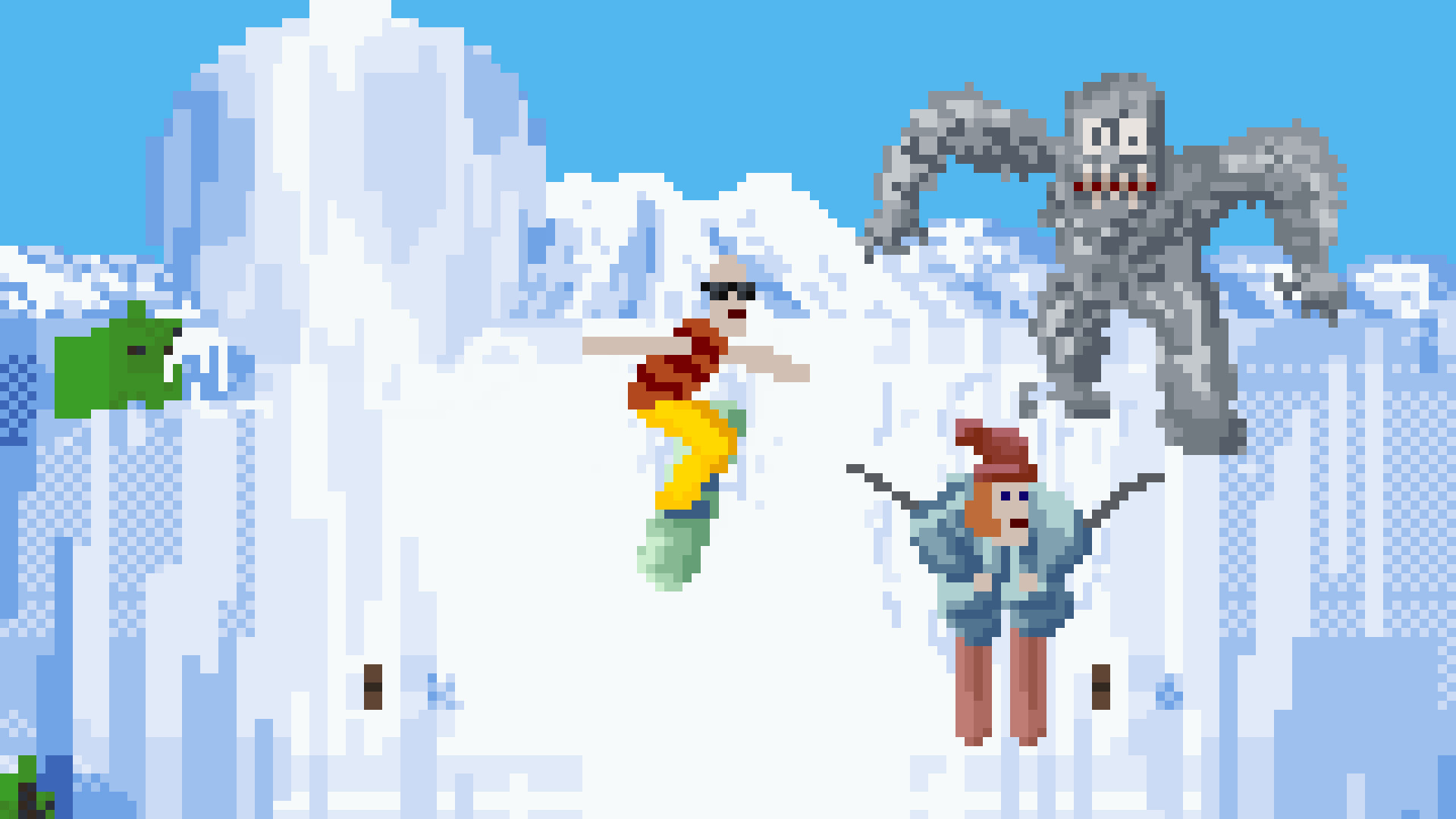
McPixel 3 is absolutely bananas. I don't know how else to describe it. It's a collection of random scenarios in which the intrepid hero McPixel must save the day from various catastrophes. Each little gameplay vignette is very brief, typically running no more than 30 seconds, and ranges from the relatively normal—escaping from a crashing cargo plane, for instance—to the utterly surreal, like trying to defuse a bomb implanted in a computer programmer's chest.
The only consistency in McPixel 3 is that nothing makes sense. Every action in every scenario has an unexpected and ridiculous reaction, and finding escapes from the various pixel art crises McPixel finds himself in is almost entirely a matter of chance. It's like using random items on each other when you're stuck in a point-and-click adventure, except that's the entire game: Bang shit together and see what happens.
Unlike conventional adventure games, though, everything you do in McPixel 3 pays off, one way or another. Maybe you move a step closer to a solution, or maybe it all ends in catastrophe. Either way, it's progress.
It's really silly, but for my money it's also a work of genius—bizarre, twisted genius, yes, but brilliant nevertheless. The gameplay is fast and furious, and as long as you can remember what steps you've taken previously and avoid repeating yourself, you'll inevitably find the solution and save the day. But the unpredictable outcomes and visual gags are what make McPixel 3 worth playing. There's just no predicting what McPixel will do: You might open the door to a Ferrari expecting that he'll climb behind the wheel, but instead, he pees in it. Why? Well, there's a bomb, you see. And he doesn't have the keys. It's hard to explain. That's what makes it so much fun.—Andy Chalk, NA News Lead
Ixion
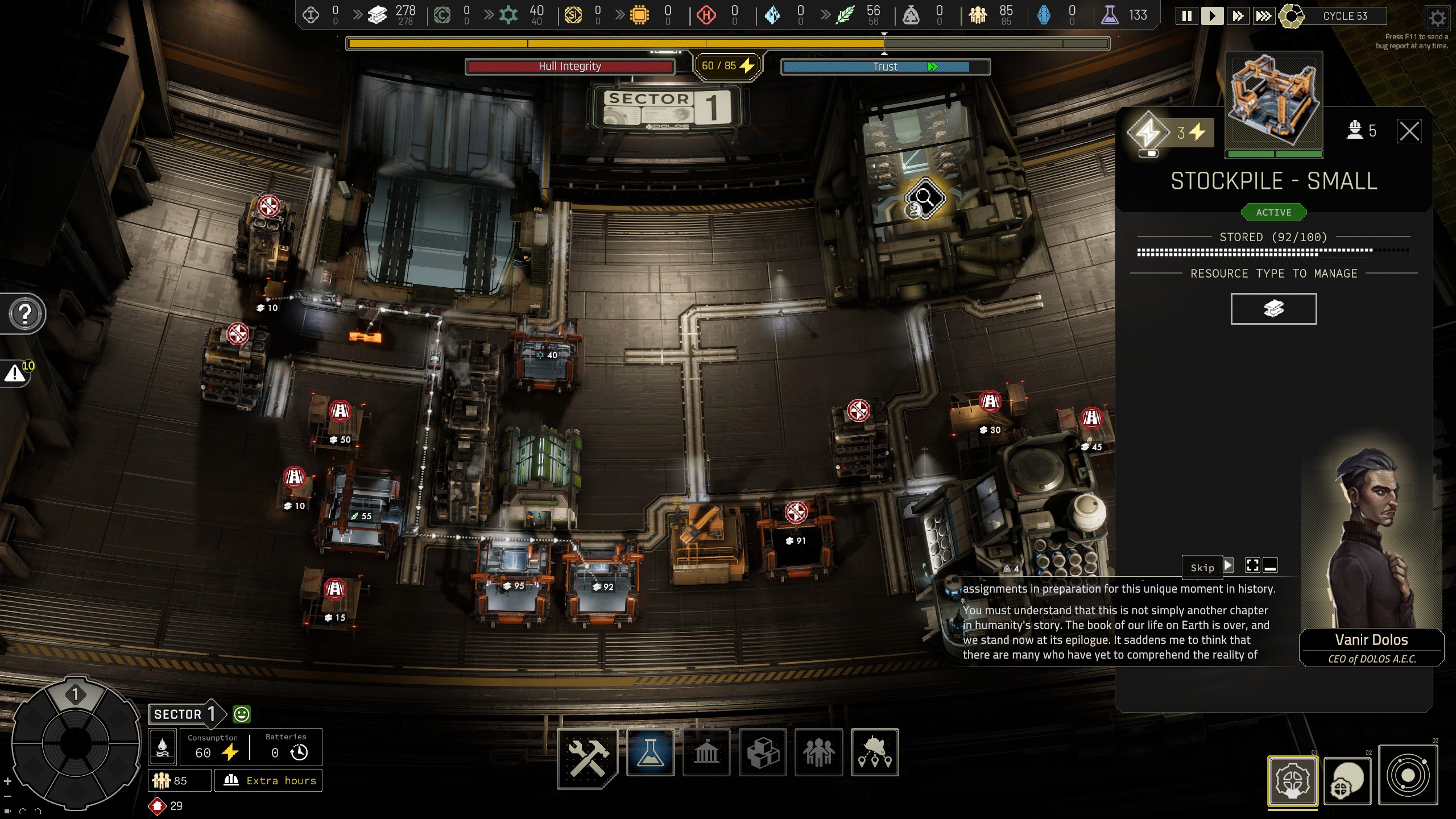
The phrase "Frostpunk in space" is pretty hard to resist. The demo of Ixion is fairly brief so you don't encounter any truly tough decisions, but it nicely sets the stage as you move through the prologue of this space station management sim. As the temporary administrator of the space base orbiting Earth, you need to get things in order ahead of building and testing the station's powerful Vohle engine, which will allow interstellar travel. Keep your crew happy by building them housing, set up a network of material shipping and storage, and begin unlocking new tech with a research department. An issue I can already see on the horizon is one of careful space management: you can't really sprawl in the interior of a space station, so everything you build needs to be placed efficiently.
Not all construction takes place inside the ship: you can zoom out a level and build solar panels and other items on the exterior of the station as well, which feels pretty awesome. As with Frostpunk and The Wandering Village, there are also away missions, where you can send science and cargo ships (once you construct them) to places on the solar system map (which is another zoom level out) and make narrative choices based on what they encounter. In just the demo, my away team already visited an abandoned base on the moon and the far side of Saturn. There's some excellent animation and fine detail in the buildings and production equipment you build, and I'm eager to find out what happens past the prologue (the Moon kinda gets destroyed, oops) when Ixion releases later this year.—Chris Livingston, Moon Ruiner
Battle Cry of Freedom
I'm kind of in awe that Battle Cry of Freedom exists. It's essentially a spiritual successor to the little-known Napoleonic Wars multiplayer expansion for Mount & Blade: Warband developed by the same people. It featured the same team deathmatch and Siege modes as the original, but completely overhauled the classes and weaponry with muskets, flintlock pistols, and bayonet combat. It was awesome, but its community has more-or-less died out in recent years.
Battle Cry fast forwards a few decades to the American Civil War, but the multiplayer demo running right now feels just like the good ol' days with some modern touches. Muskets are still an unreliable way to kill someone, which is cool, because it prevents every fight from ending in a shootout. More often, players will forgo a 30-second musket reload and charge with bayonets, leading to melee showdowns where a single decisive stab can kill you. Instrument classes are back, and friendly drums, flutes, and horns can even synchronize their playing to perform a coherent song that buffs everyone around.
The only part of Battle Cry I'm not jiving with is the setting. If there has ever truly been a "fun" war to simulate, I don't think the American Civil War is it. I'm not excited when I get assigned to the South and even less enthused to see players running around with the Confederate flag, probably because I already see way too much that in real life when I drive around my city. Also, the Confederacy wrote some really crappy music.—Morgan Park, Staff Writer
The Wandering Village
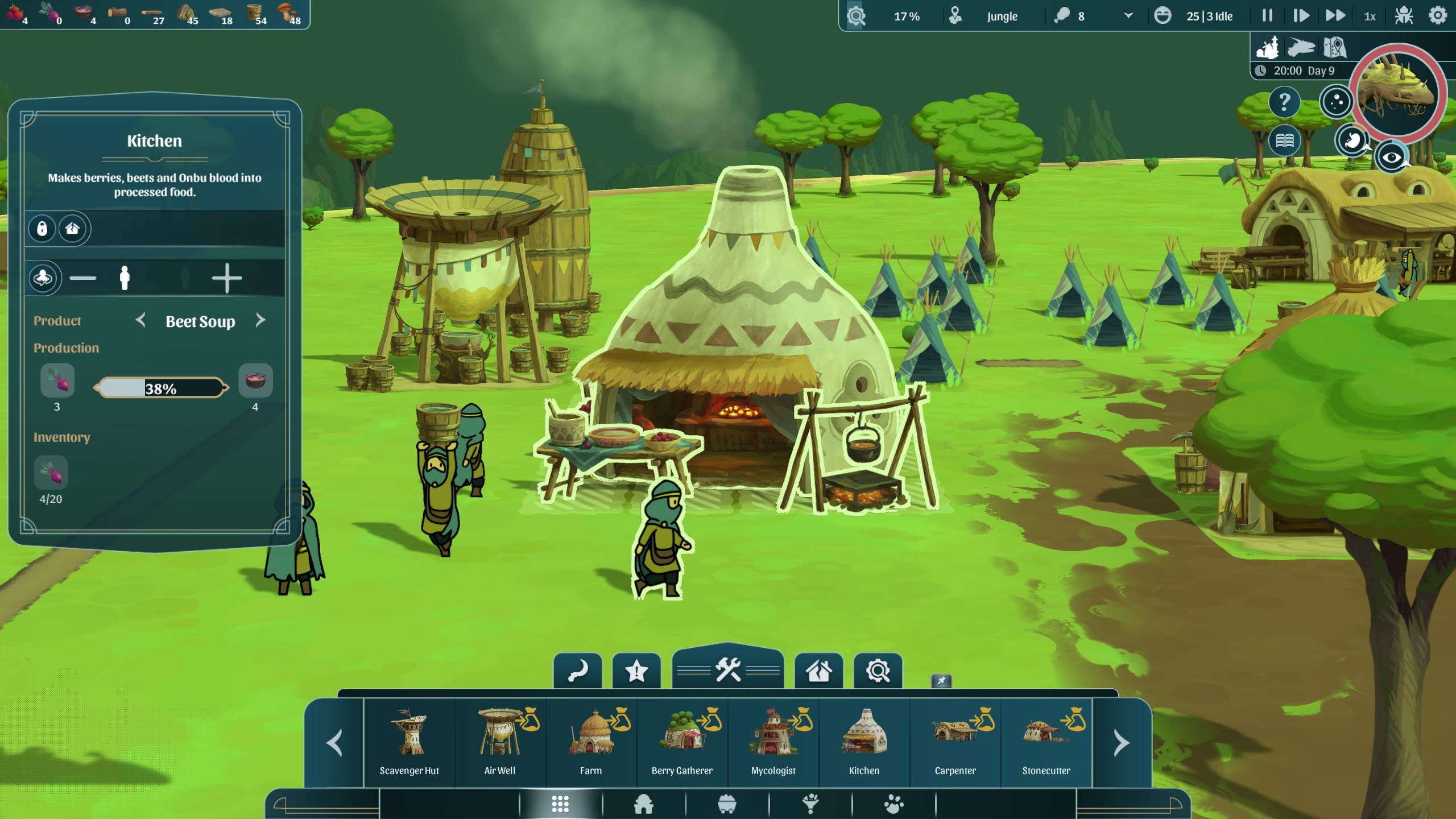
Here's a beautiful city building and management game, but it's set on the back of a giant, gentle creature that slowly roams a toxic wasteland. I immediately fell in love with Onbu, the dinosaur-like monster that carries my little town around, and most of the early decisions while researching new technology revolve around choosing between something that benefits your villagers or the creature itself. Even just communicating with Onbu is a challenge, like fleas trying to talk to the dog they're riding, and even once I'd built a giant horn to toot out instructions, Onbu didn't always listen. And that seemed fair enough—why would the dog listen to its fleas?
But soon I was feeding Onbu by building a trebuchet and launching mushrooms into its mouth, which meant the creature began to trust me. Unfortunately, spending so much research on Onbu meant I was unprepared to protect my villagers from toxic spores, which quickly engulfed my village and killed most of my wee citizens. If you like city-builders with a challenge and a bit of Frostpunk-like outside exploration, definitely give The Wandering Village demo a try. —Chris Livingston, Food Catapulter
Card Shark
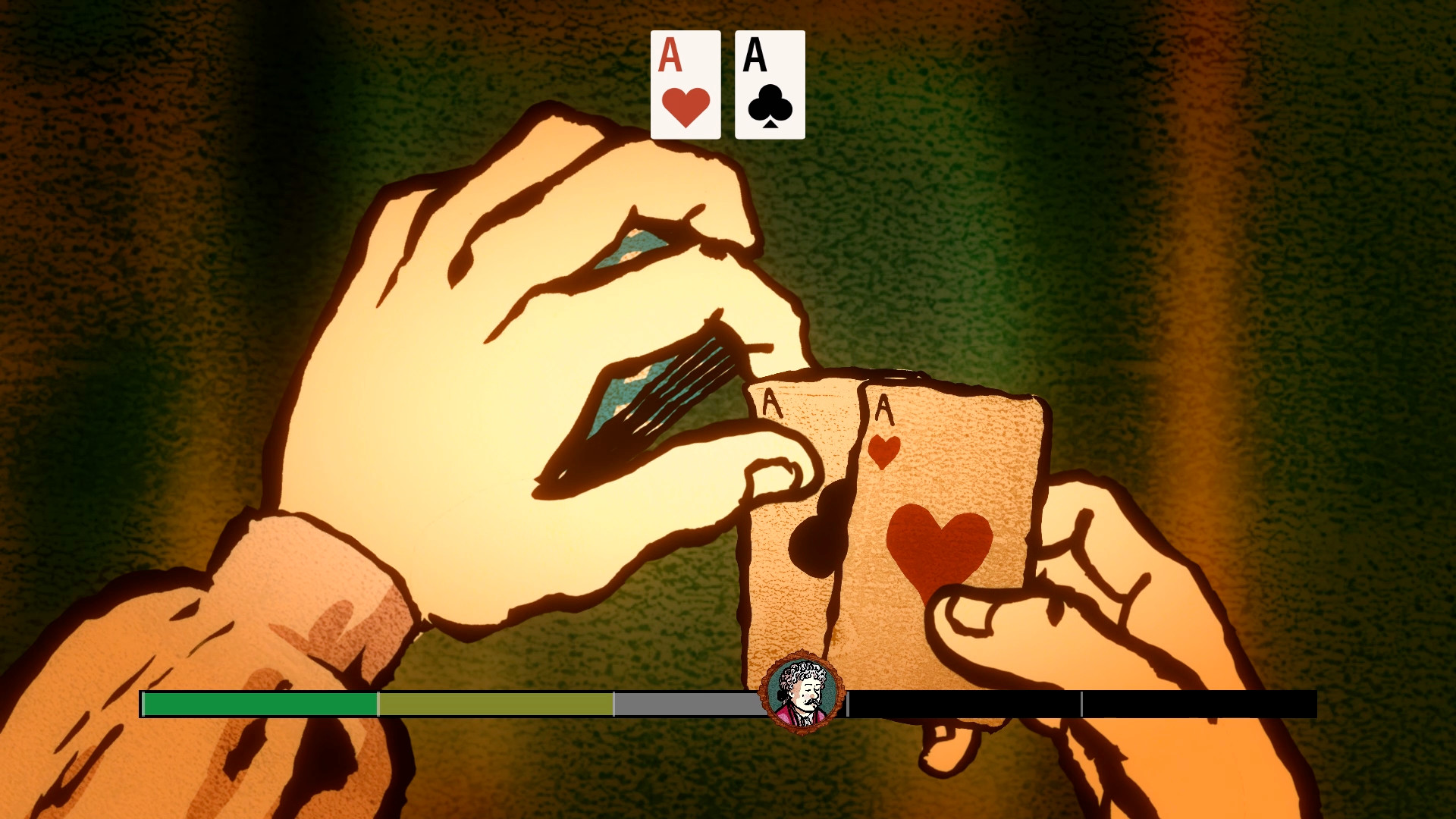
Set in 18th Century France, you begin adventure game Card Shark as a mute, illiterate servant drawn into a life of chicanery. Your mentor hustles you around the country, teaching you how to help him cheat at cards so he can rack up money and climb the ladder into high society. The tricks start out simple—peeking at someone's cards while filling their wine glass, then signaling your mentor by wiping the table with a cloth in a certain motion—but they quickly get more complex. Soon you're concealing an ace and keeping it at the top of the deck while you shuffle, and learning more signals and cheats to rack up coins.
The tricks and cheats are cleverly handled, mostly done with simple mouse motions or by clicking at the right time, but it takes a lot of memorization and good timing which ultimately makes the movements feel far more complex than they actually are. Pull off a long string of cheats before your opponent gets too suspicious and it really does feel like you're performing some complicated sleight of hand. Mess up and get caught, and you may wind up in prison, stabbed by an angry mark, or just broke and forced to scam suckers with a little Three-card Monte. Surrounding it all is a wonderfully told story and interesting characters, and no small sense of guilt when violence erupts due to your cheating. I can't wait to play the full game. —Chris Livingston, French Hustler
The Past Within
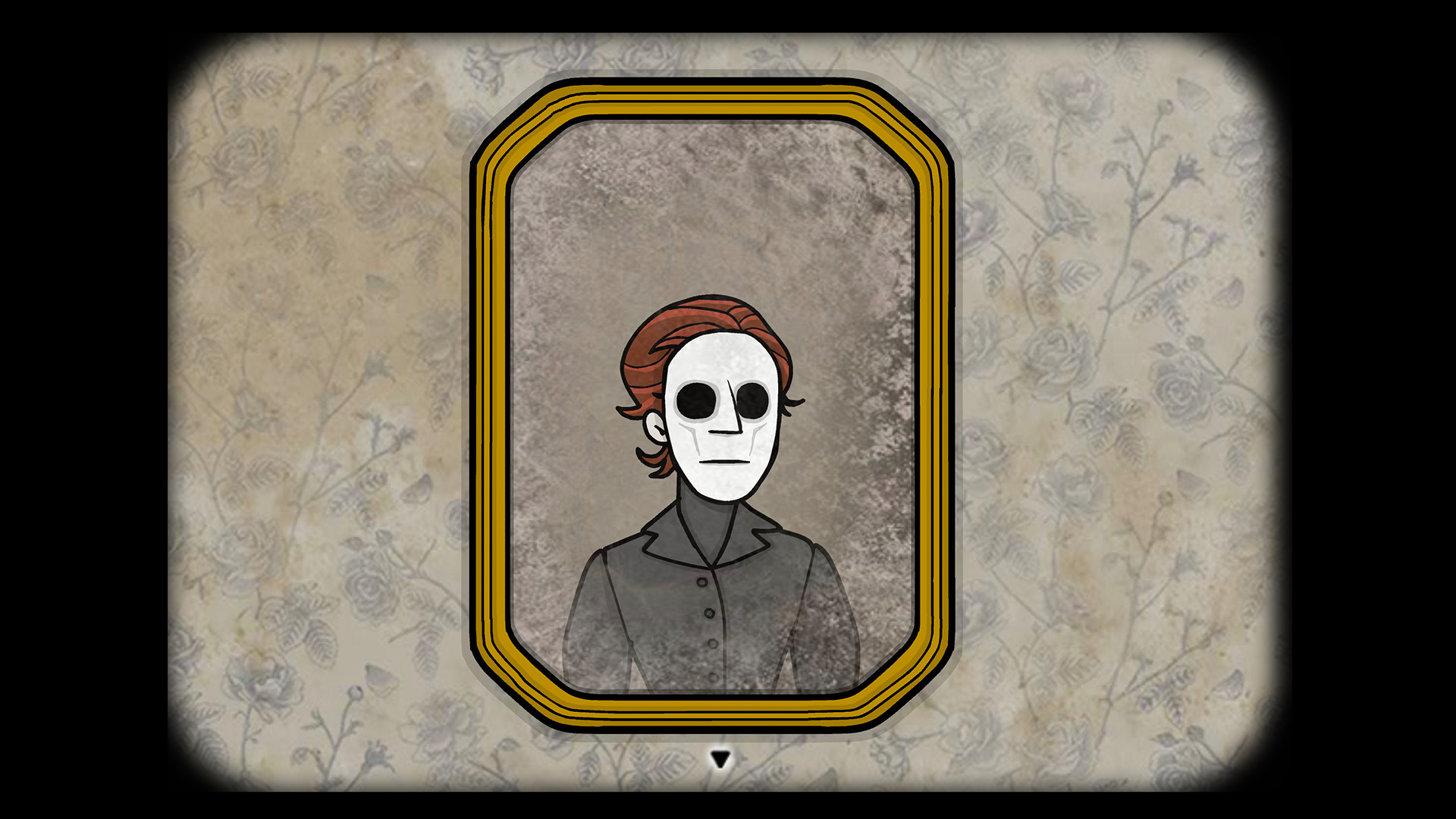
The Past Within is an asymmetric puzzle-adventure for two players who must work together from different perspectives to uncover the legacy of Albert Vanderboom and his daughter Rose. One player takes control of Albert's long-past life, examining his things and tracing his movements, while the other operates a simplistic computer in the present day, inputting data and producing clues and directions. At the beginning of the demo, for instance, the computer will indicate where a series of symbols can be found in Albert's room; those symbols must be found by the player in the past and described to the operator to reveal the solution to another puzzle. But the exact nature of that puzzle isn't provided—it's up to the person in the past to use those clues, described by the operator, to figure out what the puzzle is.
It feels more like a proof-of-concept than a fully-developed game at this point and shouldn't take much more than 15 minutes to finish, but the concept is very clever and it works surprisingly well. Clarity of communication is vital, and even though nothing in the demo is overly complex it becomes a little extra-interesting when you're playing with a stranger, which is how I took it on. It was a bit nerve-wracking at first (I hate talking to people I like, much less someone I've never met) but it didn't take long before we were comfortable and forging ahead at a good clip. A notepad, by the way, is vital: Descriptions like "box with a T in it" and "circle that looks like a spoon" make a lot more sense (and are a lot easier to keep track of) when you've actually drawn them out.
The Past Within demo isn't as intensely weird or dark as other Rusty Lake games, presumably because it's relatively light on content, the upside of which is that it's a little less off-putting, let's say, than the previous games in the series. It's also very accessible even if you haven't played any of its predecessors—all the games in the series are connected, but work perfectly well as standalone experiences. And don't worry about finding a partner to play with: The Rusty Lake Discord server has channel for people looking for partners.—Andy Chalk, NA News Lead
Writer's Block
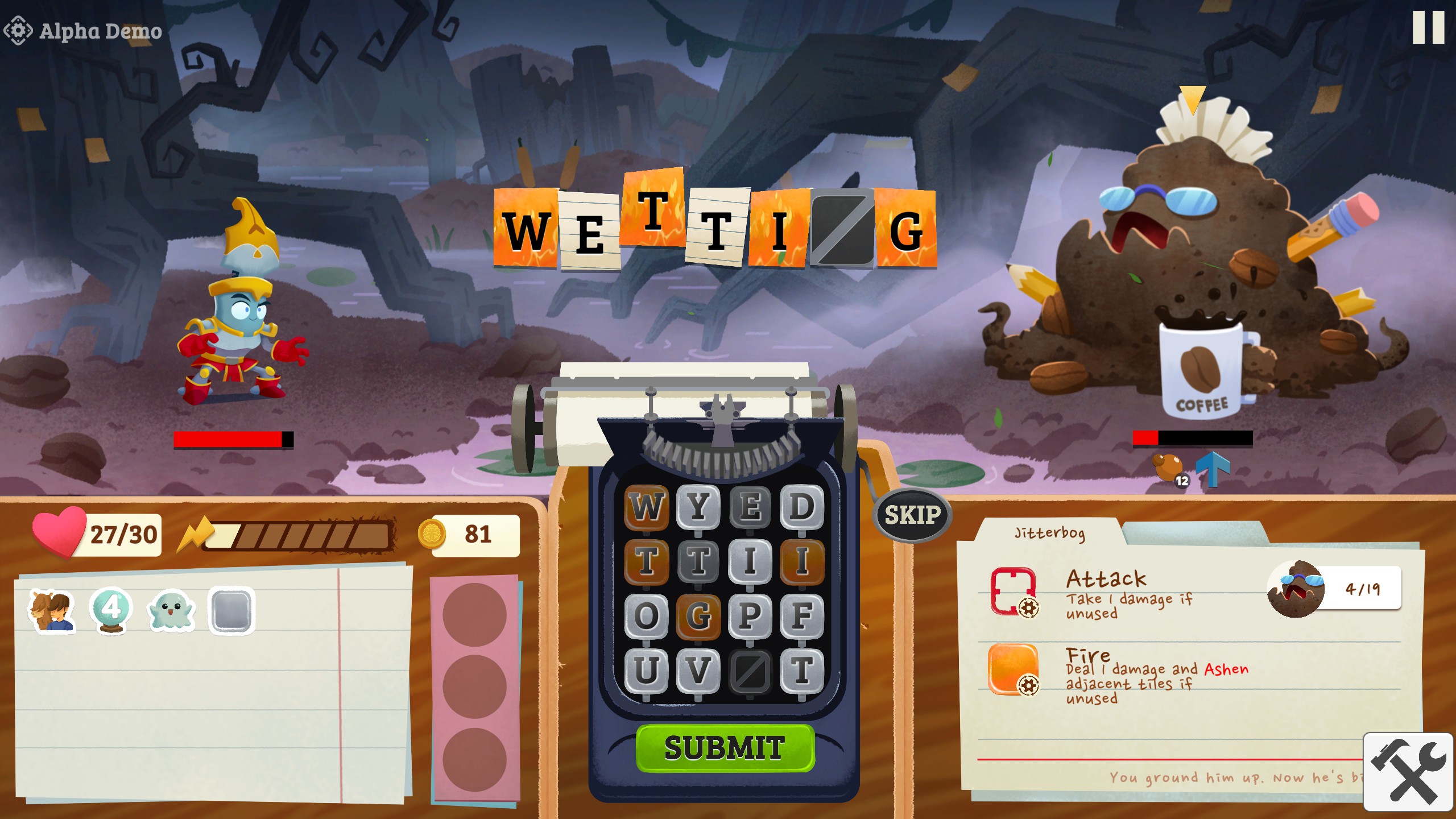
If you've played Slay the Spire or other similar roguelike deckbuilders, you'll feel right at home with Writer's Block. And it won't hurt if you've got some recent Wordle experience under your belt, either. If you wanna fight you've gotta write, by picking letters from your typewriter and spelling out words. Your enemies will attack some of your letters, dousing them with poison or fire or other effects, meaning if you don't use those letters in your next word you'll take damage each round. As you win fights and travel across the map, you'll gain literary devices, like a ghost writer who takes a few hits for you, and there are the expected shops and campfire rests along the way to the boss waiting at the end.
I only wish I could actually type the letters with my keyboard rather than having to click on them, but it's still a fun and breezy demo. The enemies are creatively designed, and I fought a bizarre menagerie of creatures from an angry tube of toothpaste to bees made from lightbulbs to a jittery boss made of sentient coffee grounds. Funnily enough, all the words you type throughout your adventure are saved and turned into a novel—probably a pretty confusing one.—Chris Livingston, Word Wrangler
Potion Tycoon
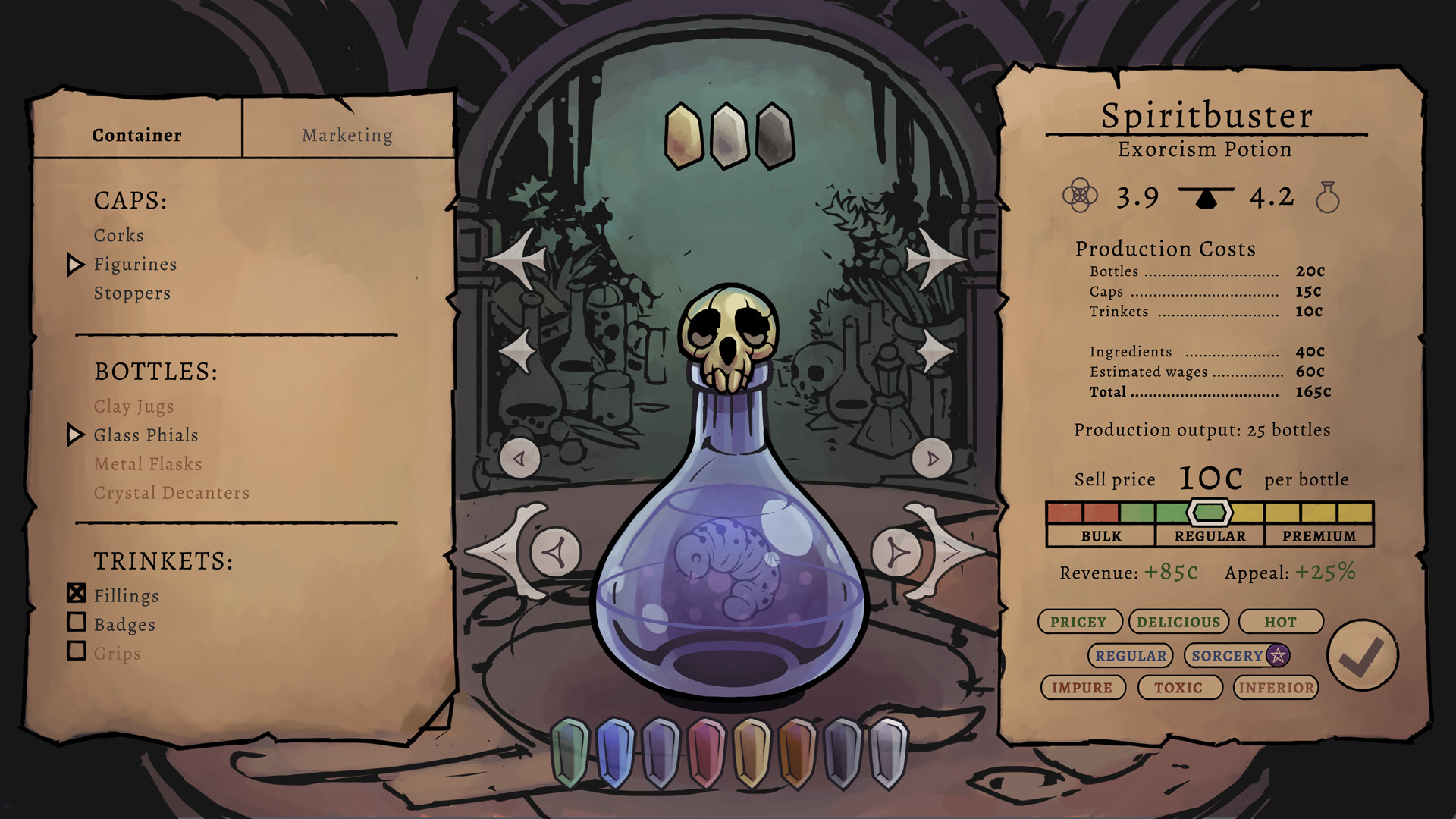
I guess I just can't get enough games about running a potion shop in my life. First there was Potion Craft, and now there's Potion Tycoon. Starting with a few ingredients and a couple of pieces of alchemical equipment, you can build up your shop and turn it into a booming business for all those thirsty and wounded adventurers out there.
There's a lot going on, from the recipe book where you mix and experiment with alchemical ingredients to create new potions, to the bottle and cork design which gives each of your brews a distinctive and eye-catching look. And then there's the shop itself, which can you can staff with various goblins assigned to specific duties like mixing ingredients, drying herbs, crushing leaves, and even manning the front desk to make sales. Each employee will gradually get better at their jobs so you even get to manage their little goblin promotions. And as your shop grows in popularity, you can expand by adding rooms, extra floors, and even a bigger basement. Potion Tycoon feels like it could wind up being a really charming and satisfying shop sim.—Chris Livinston, Goblin Manager
The collective PC Gamer editorial team worked together to write this article. PC Gamer is the global authority on PC games—starting in 1993 with the magazine, and then in 2010 with this website you're currently reading. We have writers across the US, UK and Australia, who you can read about here.


